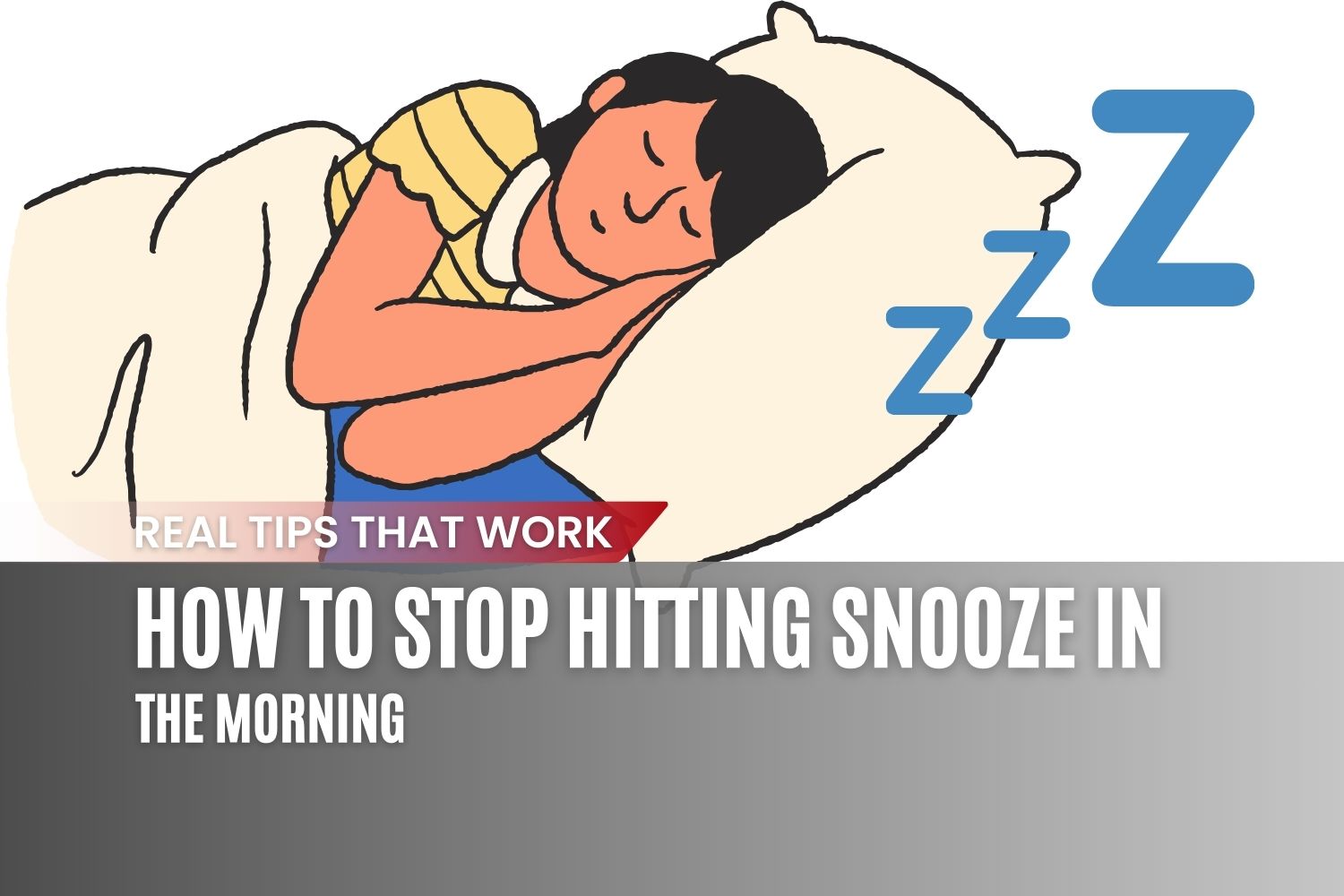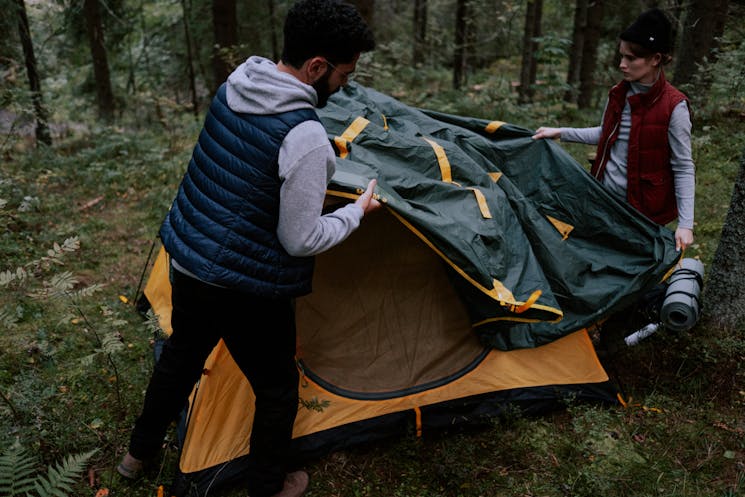How to Stop Hitting Snooze in the Morning: Real Tips That Work

The Real Problem with Hitting Snooze (and Why It Feels So Good)
Here’s the truth behind that awful 9-minute snooze cycle… You think you’re getting more sleep — but really, you’re throwing your body into chaos.
Each time you go back to sleep, your brain restarts the sleep cycle. But it gets cut short by the next alarm — leaving you groggy and irritable.
Does hitting snooze make you more tired? Yes. Those last few “extra” minutes aren’t restful. They’re fragmented and low quality — which is why you feel worse after snoozing than just getting up.
Why We Keep Hitting Snooze (Even When We Know It’s Bad)
Let’s be honest: most of us aren’t lazy. We’re just tired, anxious, or overwhelmed.
- “I’m not a morning person — I need time to mentally wake up.”
- “I have ADHD. My alarm sounds like it’s part of my dream.”
- “I set multiple alarms so I can feel like I’m getting away with something.”
- “It’s the only time I get to relax before the chaos of the day.”
You’re not alone. But you can shift this habit — one small tweak at a time.
Most Popular Tricks to Stop Snoozing in the Morning
1. Move Your Alarm Across the Room
This one works. If your alarm is on your nightstand, your sleepy brain will silence it before you’re even aware.
What to do: Put your phone or clock across the room. Force yourself to physically get out of bed to turn it off. Once you’re on your feet, it’s way easier to stay up.
2. Set a Smarter Wake-Up Routine
- Use a sunrise light or soft alarm tone
- Schedule your coffee machine to brew before your alarm
- Avoid harsh beeps that trigger anxiety
3. Ditch Multiple Alarms — Use One
Many people set 5 or 6 alarms thinking it helps. It doesn’t. You’re training your brain to ignore alarms. One reliable alarm — set at the actual time you need to wake up — tells your brain: this is it.
4. Trick Your Body Awake
- Chug a glass of water the moment you wake up
- Do a few jumping jacks to shock your system
- Set a fun or energizing song as your alarm
Mindset Shifts That Help You Ditch the Snooze
5. Understand Why You Hit Snooze
Hitting snooze often connects to:
- Anxiety
- Job burnout
- Poor sleep hygiene
- Lack of motivation in the morning
Try this: Plan something you actually look forward to — a peaceful breakfast, a walk, or a few quiet minutes with coffee.
6. Build a Consistent Sleep Schedule
Go to bed and wake up at the same time — even on weekends. Once your body adjusts, you’ll naturally wake up before the alarm — making snoozing far less tempting.
Creative Tips People Swear By
- Use a Song You Love: Some use a calming playlist. Others pick songs they can’t ignore (yes, “Eye of the Tiger” counts).
- Use a Pet as an Alarm: A dog or cat can be your best natural wake-up call.
- Make It a Challenge: Try apps like Alarmy or Alarm Clock Xtreme to force your brain to wake up.
What Doesn’t Work for Everyone
- Putting the Alarm Too Far Away: Some people will sleep through it or go back to bed.
- Repeating Alarms: More alarms = more stress = more tiredness.
- Snoozing for the Good Dreams: It’s a false comfort that drains your real energy.
🎯 Final Thoughts: How to Not Hit Snooze — For Real
Hitting snooze is a habit — not a personality flaw. And like any habit, you can change it.
Start small:
- Move your alarm
- Choose one wake-up cue
- Commit to skipping snooze tomorrow
It might not feel great the first time. But day by day, it gets easier. Eventually, you’ll wake up feeling clear and in control.
FAQs
- Does hitting snooze make you more tired?
- Yes. It disrupts your sleep cycle and makes you groggier.
- How do I train myself not to snooze?
- Start with one alarm, move it away from the bed, and create a morning routine you enjoy.
- Is it okay to snooze once?
- It’s not terrible, but breaking the habit altogether works better long-term.
- Why is snooze set to 9 minutes?
- It’s a leftover from old mechanical clocks — and phones never changed it.
- Can anxiety make you snooze more?
- Absolutely. Structure and soothing morning cues help make waking up less overwhelming.


























Leave a Review